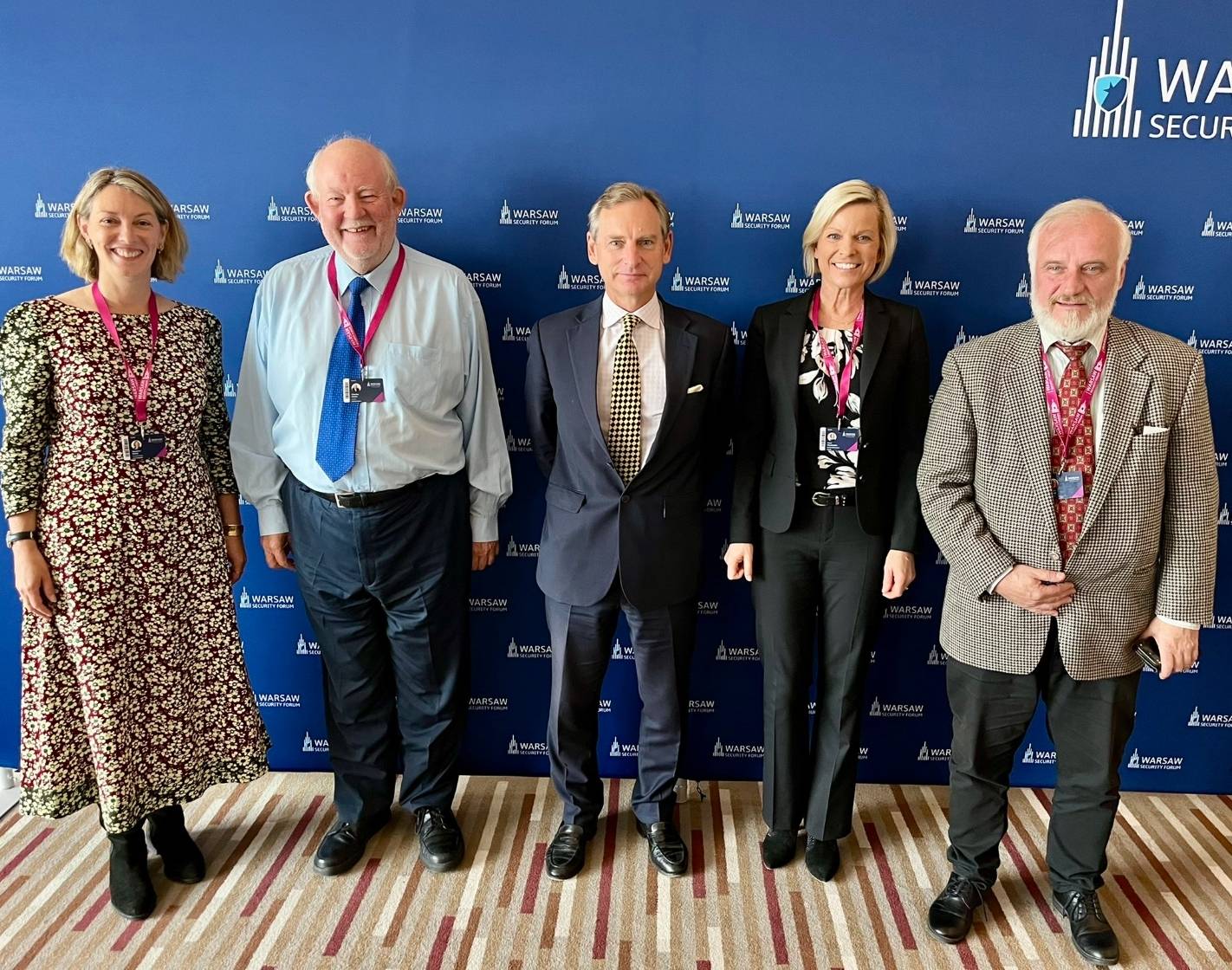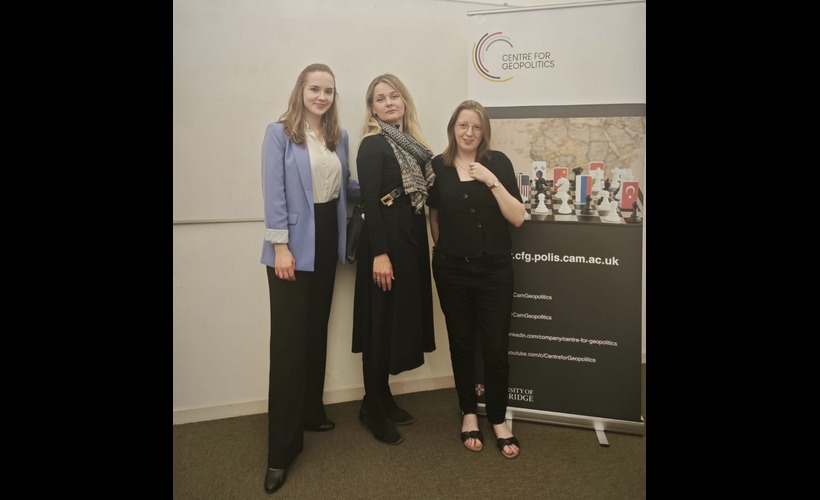One year on since the Centre for Geopolitics first organised a panel at the Warsaw Security Forum, and the mood Europe has changed dramatically. This conference was all about Ukraine: the conference awarded the Knight of Freedom Award to the people of Ukraine, and it was collected by Ukrainian First Lady Olena Zelenska, who appeared alongside the Prime Ministers of Poland and Lithuania. The President of Latvia, German Foreign Minister and British Secretary of State for Defence all underlined the importance of continuing assistance to Ukraine, including strong economic assistance, particularly in the face of Russia’s mobilisation and Putin’s nuclear threats.
Charles Clarke and Suzanne Raine represented the Centre this year, holding a panel discussion entitled ‘European Security and the Baltic Sea: Self Defence or Collective Defence?’ We were joined by General Sir Mark Carleton-Smith, Baroness Cathy Ashton, Anna Wieslander and Robert Pszczel. The panel focused on the question of common understanding as the basis for collective action, and whether more can be done to develop that common understanding given the threats we face in the Baltic.
The panel agreed that it had been difficult to build EU-wide acceptance of the scale of the challenges posed by Russia, and that Russia’s invasion of Ukraine had made the Baltic central to European defence. The countries which border Russia have practical experience of dealing with the reality of Russian aggression and were among the first to sound the alarm. The military geometry in the Baltics will change very fundamentally with Swedish and Finnish accession to NATO, and the next task will be to improve the platform for providing regional deterrence, building systems which communicate with each other and preparing to respond earlier and with more strength. That will take determination and leadership.

From left to right: Suzanne Raine, Rt Hon Charles Clarke, General Sir Mark Carleton-Smith, Anna Wieslander and Robert Pszczel







